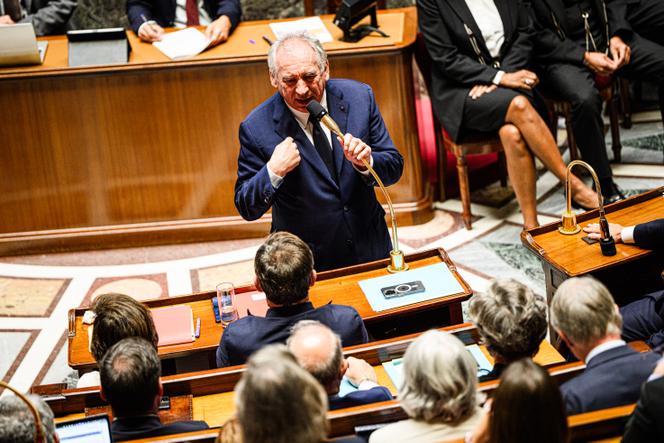


François Bayrou was ousted as prime minister on Monday, September 8, after losing a vote of confidence in the Assemblée Nationale. Bayrou and his government lost the vote by 364 votes to 194, with opposition parties uniting against him.
Bayrou, who was on the job for just nine months, blindsided even his allies by calling a confidence vote to end the lengthy standoff over his austerity budget. He had unveiled his budget plan in July, which sought €44 billion in spending cuts over three years, including reductions in pension and healthcare spending. The proposals had triggered weeks of tense debate in Parliament and strong public criticism.
Bayrou was the sixth prime minister under President Emmanuel Macron since the French president was first elected in 2017. Bayrou's ousting leaves Macron with a new domestic headache at a time when he is leading diplomatic efforts on the Ukraine war.
Before the vote at the Assemblée Nationale, Bayrou defended his decision to call the high-risk confidence vote, telling MPs: "The biggest risk was not to take one, to let things continue without anything changing (...) and have business as usual."
Describing the debt pile as "life-threatening" for France, Bayrou said his government had put forward a plan so that the country could "in a few years' time escape the inexorable tide of debt that is submerging it." "You have the power to overthrow the government," but not "to erase reality," said Bayrou.
Bayrou is the second French prime minister in succession to have suffered such a fate, after Michel Barnier was ejected in December after only three months in office. The vote now forces Macron to face one of the most critical decisions of his presidency: appoint a seventh prime minister to try to thrash out a compromise, or call snap elections in a bid to have a more accommodating parliament.
Far-right three-time presidential candidate Marine Le Pen urged Macron to call snap legislative elections to end the political deadlock. Holding the polls is "not an option but an obligation" for Macron, Le Pen told the Assemeblée ahead of the vote, which she predicted would bring about "the end of the agony of a phantom government.".
There is no guarantee an election would result in any improvement in the fortunes of Macron's centre-right bloc in parliament. While the Socialists have expressed readiness to lead a new government, it is far from clear if such an administration could survive.
Alongside political upheaval, France is also facing social tensions. A left-wing collective calling itself "Bloquons Tout" ("Let's Block Everything") is calling for a day of action on Wednesday, and trade unions have urged workers to strike on September 18.
This is a developing story.
January 9, 2024: After a tense vote in the Assemblée Nationale, Emmanuel Macron decided to reshuffle his cabinet and name a new prime minister, Gabriel Attal.
June 9, 2024: Marine Le Pen's far-right Rassemblement National (RN) obtained a historic score in the European Parliament elections, winning 30 of France's 81 seats. One hour after the results were announced, Macron shocked the nation by dissolving the Assemblée Nationale, triggering snap elections.
July 7, 2024: The left-wing Nouveau Front Populaire (NFP) alliance defied expectations of an RN victory and won more seats than any other bloc. The NFP later put forward Lucie Castets, a little-known civil servant, as its candidate for prime minister.
September 5, 2024: Macron picked Michel Barnier, of the conservative Les Républicains (LR) party, to become prime minister. Together, Macron's coalition and LR had more seats than the NFP.
December 4, 2024: Barnier's government collapsed as the far right and left backed a motion of confidence. The votes also scuttled Barnier's budget for 2025.
December 13, 2024: Macron appointed his longtime centrist ally François Bayrou to replace Barnier. The coalition backing Bayrou in Parliament was the same as Barnier's.
February 6, 2025: France belatedly passed a budget for 2025 as Bayrou forced the legislation through without a vote. The RN and the Socialists abstained from backing the resulting motion of no confidence.
August 25, 2025: Bayrou called a vote of confidence ahead of the 2026 budget debates.
September 8, 2025: Vote of confidence in the Assemblée Nationale.
September 10, 2025: A day of protest under the slogan "Block Everything" is scheduled.
